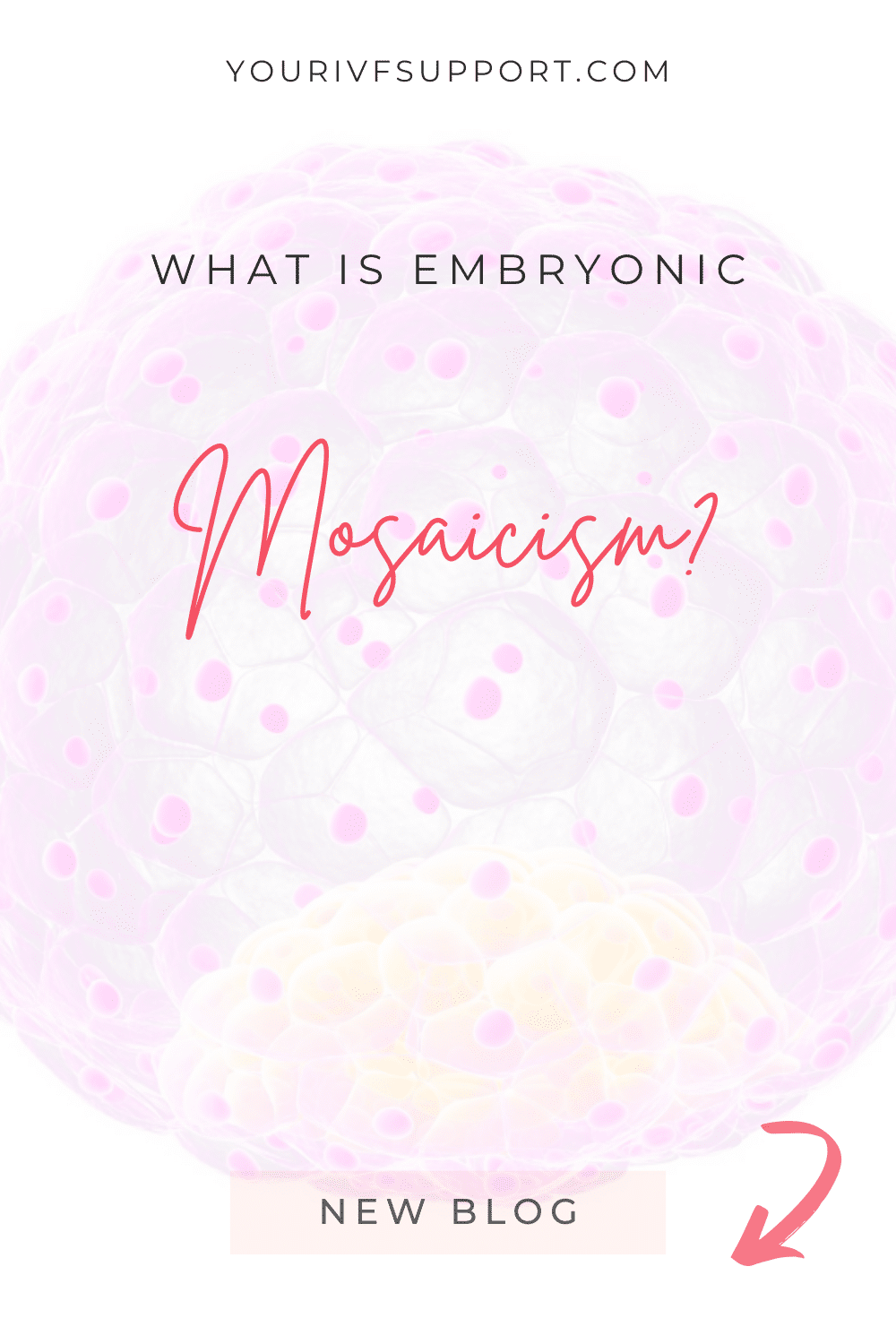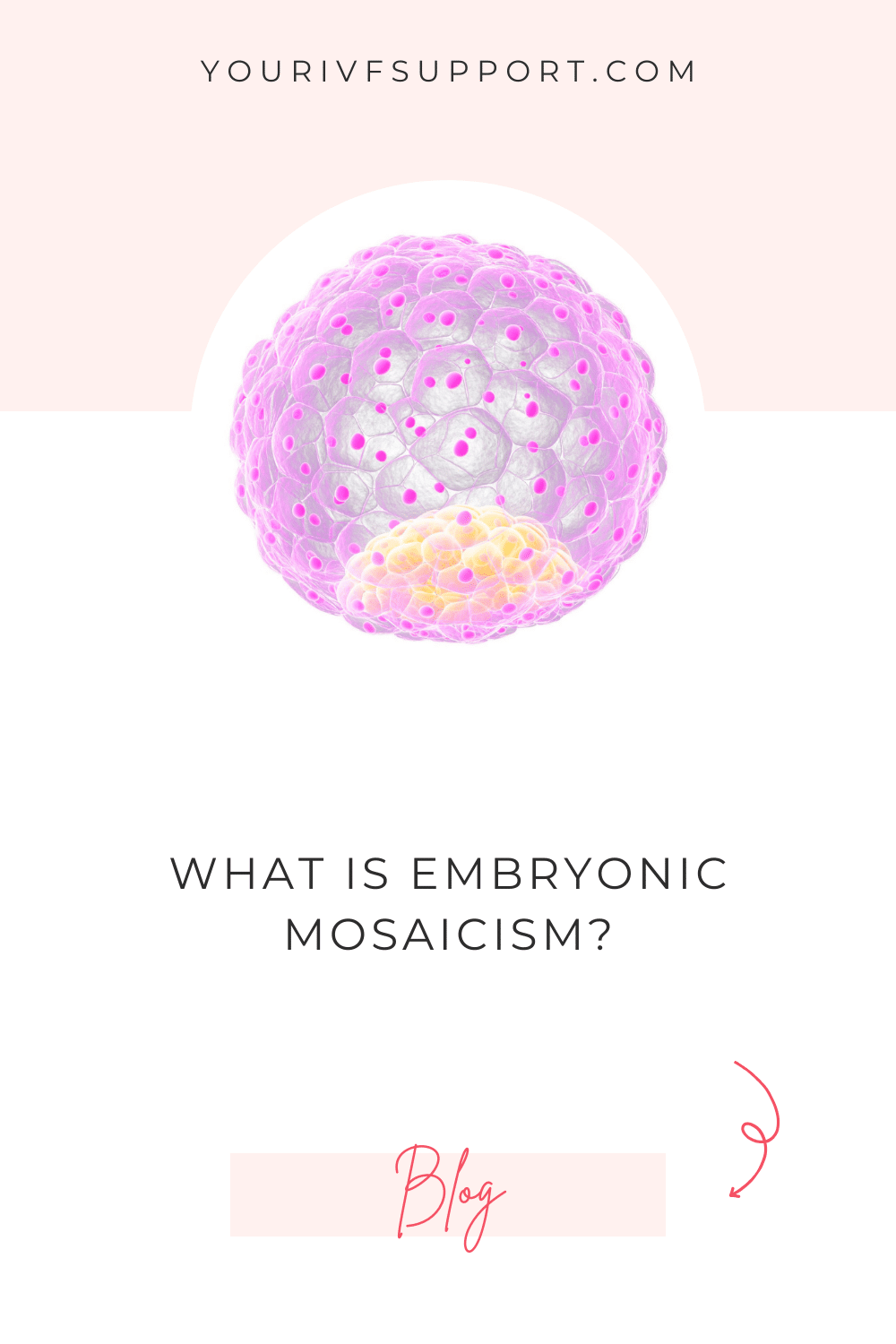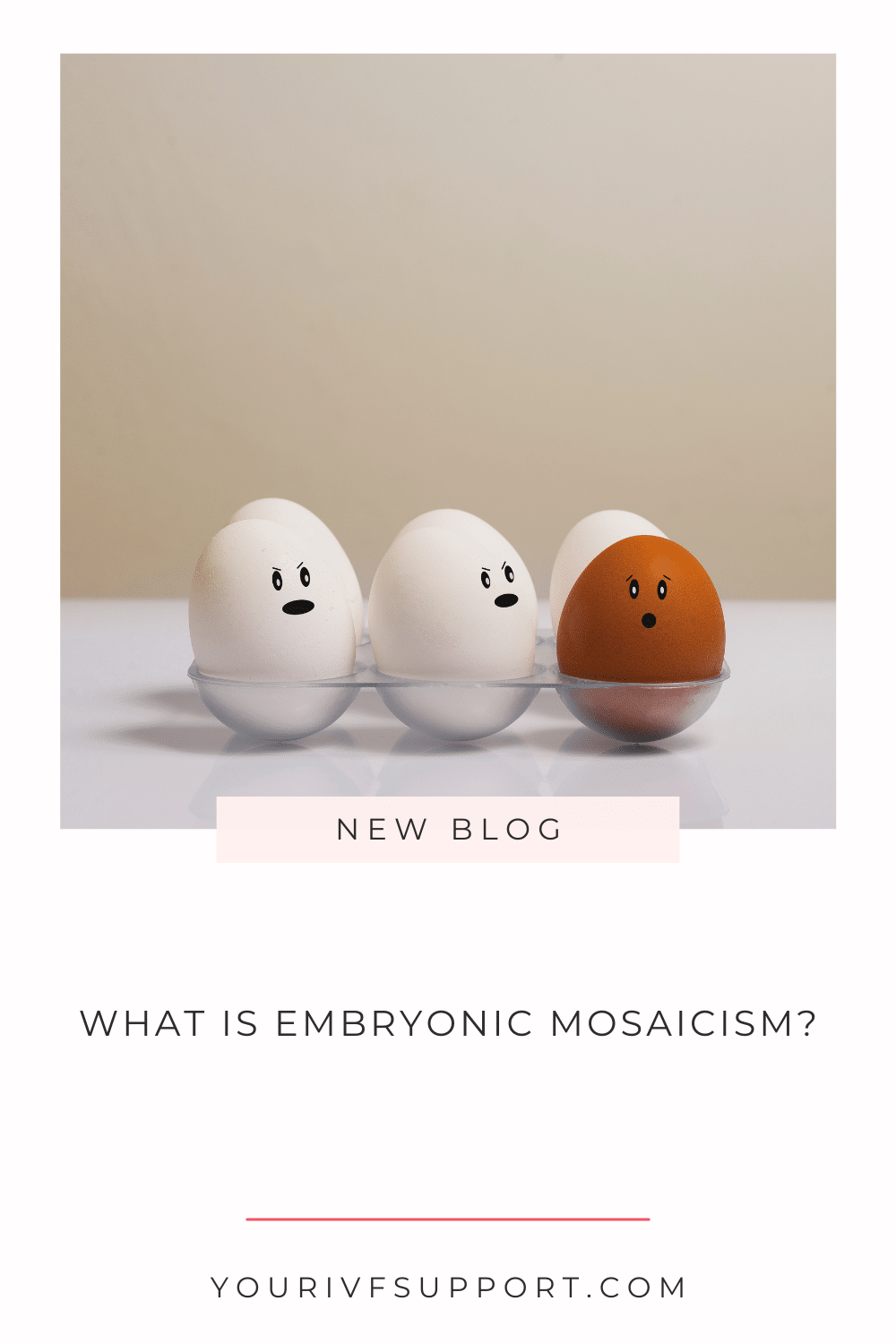Embryonic mosaicism is a complex topic that may seem overwhelming at first. However, understanding it is crucial for anyone undergoing fertility treatment, especially when considering preimplantation genetic diagnosis (PGD).
In this article, I will explain what embryonic mosaicism is, how it can affect fertility treatment and what to expect if mosaic embryos are part of your journey to becoming a parent.
Introduction to chromosomes
Every human being has 46 chromosomes arranged in 23 pairs. These chromosomes carry all the genetic information needed to develop and function as a human being. Half of the chromosomes come from the father and half from the mother. It is important for normal development that the number of chromosomes is correct. If there are too many or too few, this can lead to developmental problems, failure to implant in the uterus, miscarriages or children with abnormalities.
What is embryonic mosaicism?
Embryonic mosaicism occurs when an embryo has a mixture of normal and abnormal cells in terms of chromosome number. This phenomenon is caused by errors in cell division and does not appear to be related to the genetic material of the mother or father. Research suggests that about 20% of human embryos have chromosomal mosaicism. In these cases, the abnormal cells can make up between 20% and 80% of the embryo's cells.
Why is this important?
Embryos with mosaicism are slightly less likely to implant and develop into a viable pregnancy than embryos without mosaicism. However, they can still lead to successful pregnancies and healthy babies. The presence of mosaicism may make the decision to transfer embryos as part of fertility treatment more difficult.
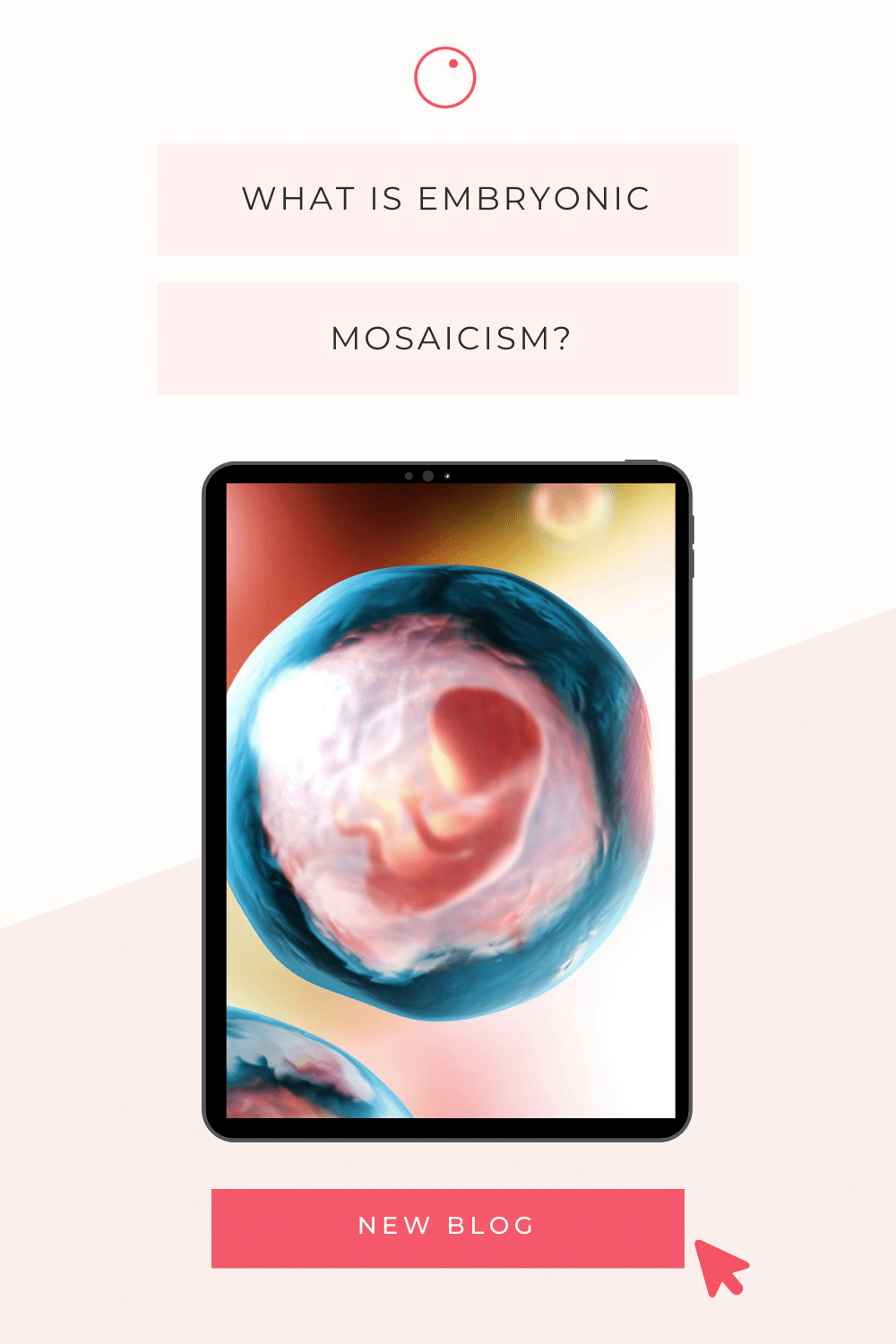
Causes of embryonic mosaicism
The main cause of embryonic mosaicism is incorrect separation of chromosomes during cell division in the early stages of embryonic development. This faulty division can result in some cells having the correct number of chromosomes while others do not. Importantly, this error occurs after fertilisation and cannot be predicted or prevented.
Risk factors:
- Maternal age: Older maternal age is often associated with a higher rate of chromosomal abnormalities in embryos.
- Paternal age: Recent studies show that older paternal age may also influence the development of mosaic embryos.
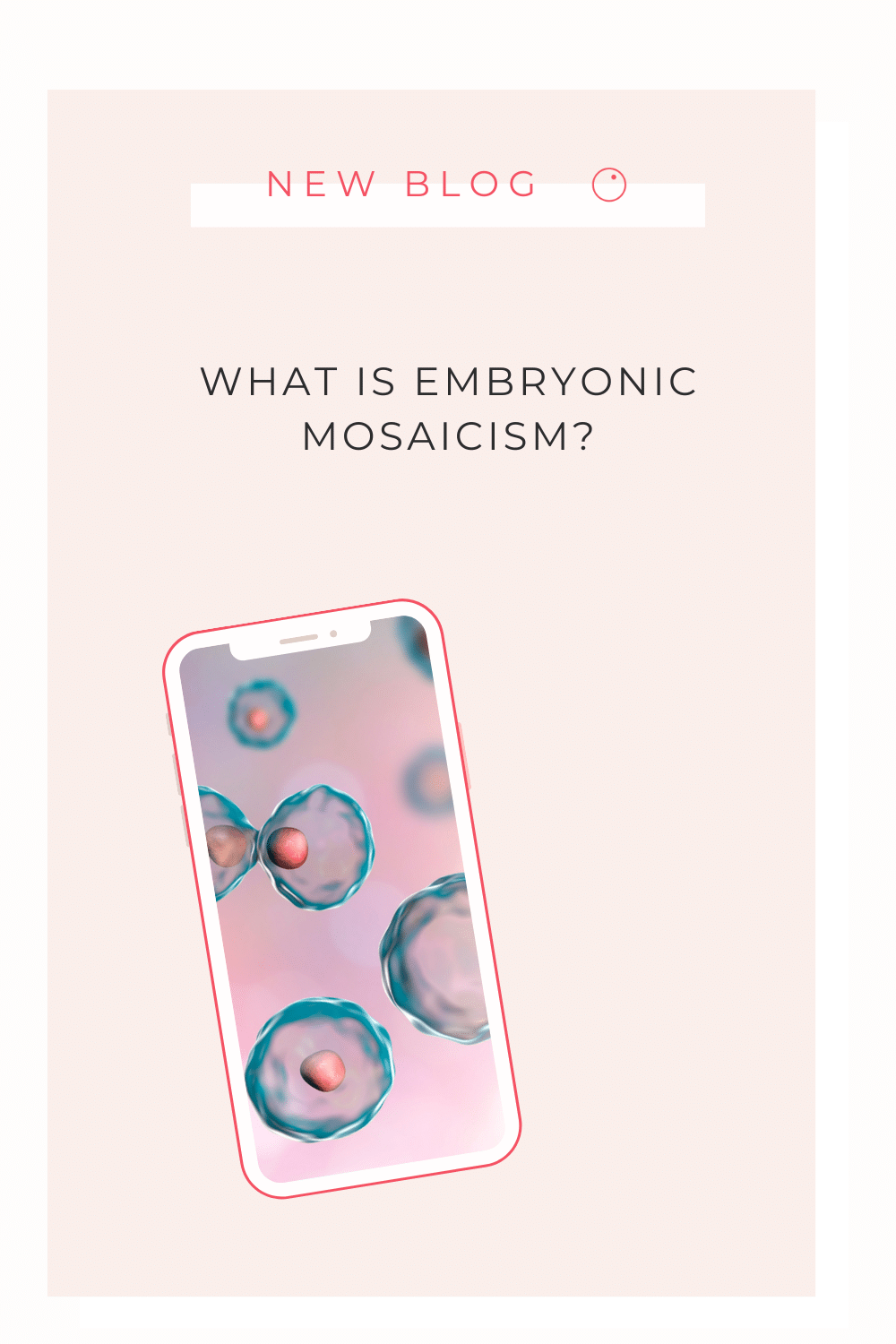
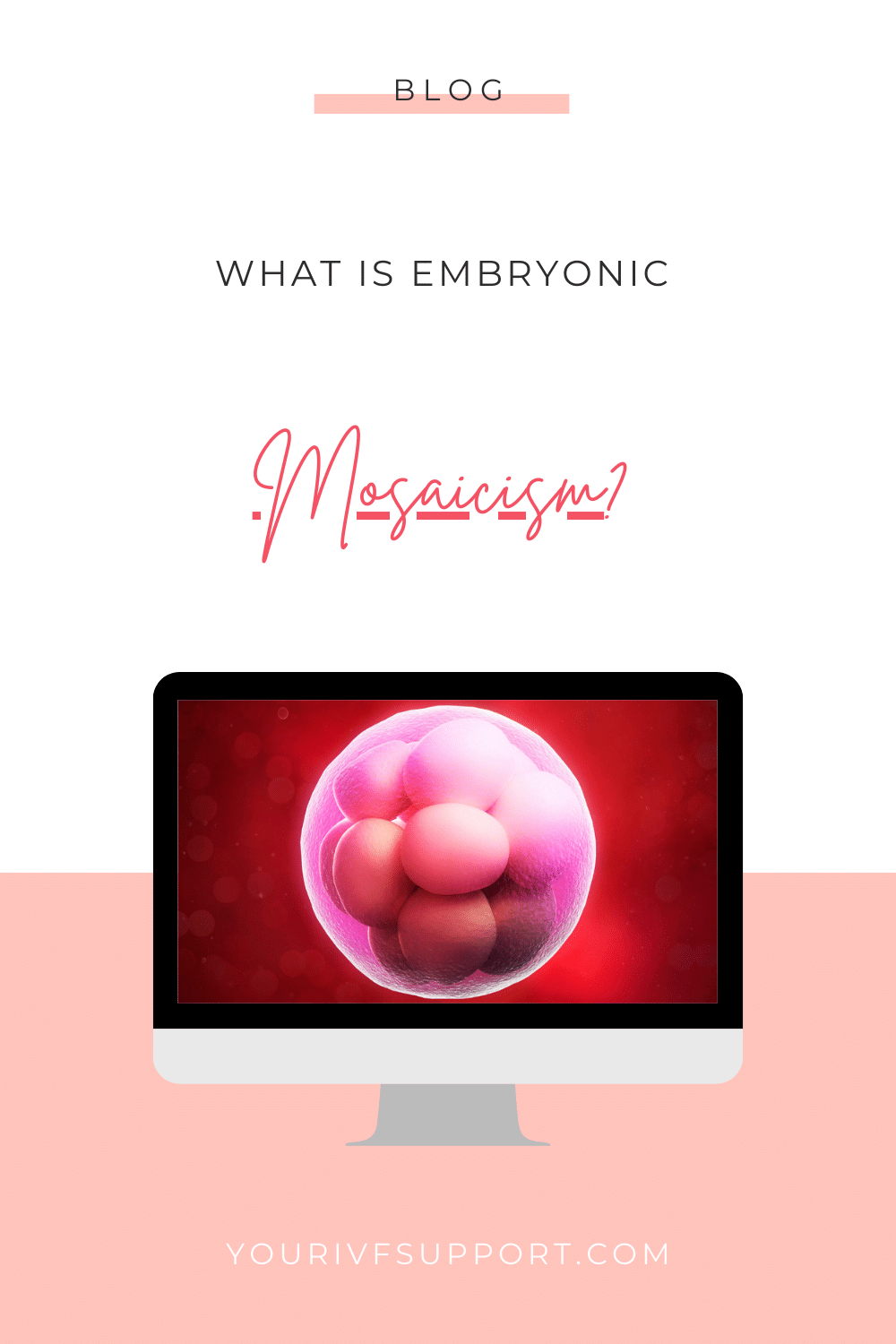
Detection and diagnosis
Embryonic mosaicism can be detected by preimplantation genetic diagnosis (PGD), which involves taking and analysing a few cells from the outer layer of the embryo (the trophectoderm) on days 5 to 7 of development. The analysis uses techniques such as array CGH, fluorescence in situ hybridisation (FISH) or next-generation sequencing (NGS) to look for chromosomal abnormalities.
The procedure:
- Embryo biopsy: a small number of cells are taken from the trophectoderm.
- Genetic analysis: the cells are analysed to see if they have the correct number of chromosomes.
- Interpretation of the results: If mosaicism is detected, the percentage of abnormal cells and the chromosomes involved are determined.
Implications for pregnancy and birth:
Embryos diagnosed with mosaicism have a lower chance of implantation and a higher risk of early miscarriage than chromosomally normal embryos. However, some mosaic embryos are able to correct themselves or organise the abnormal cells to form a healthy foetus.
" Some mosaic embryos are able to correct themselves or organise the abnormal cells to form a healthy foetus."
Pregnancy outcomes
- Implantation rate: Slightly lower than non-mosaic embryos.
- Miscarriages: Higher than with non-mosaic embryos, but not significantly higher.
- Healthy births: A significant proportion of mosaic embryos can still give birth to healthy babies.
Treatment and genetic counselling
Genetic counselling is essential for mosaic embryos. A genetic counsellor can explain the risks and benefits, help you understand the possible outcomes and help you make a decision about embryo transfer.
Important aspects of counselling:
- Understanding mosaicism: Explaining what mosaicism means and what the implications are.
- Risk assessment: Discussing the specific risks of non-implantation, miscarriage or developmental problems.
- Informed choice: Helping you decide whether to transfer mosaic embryos.
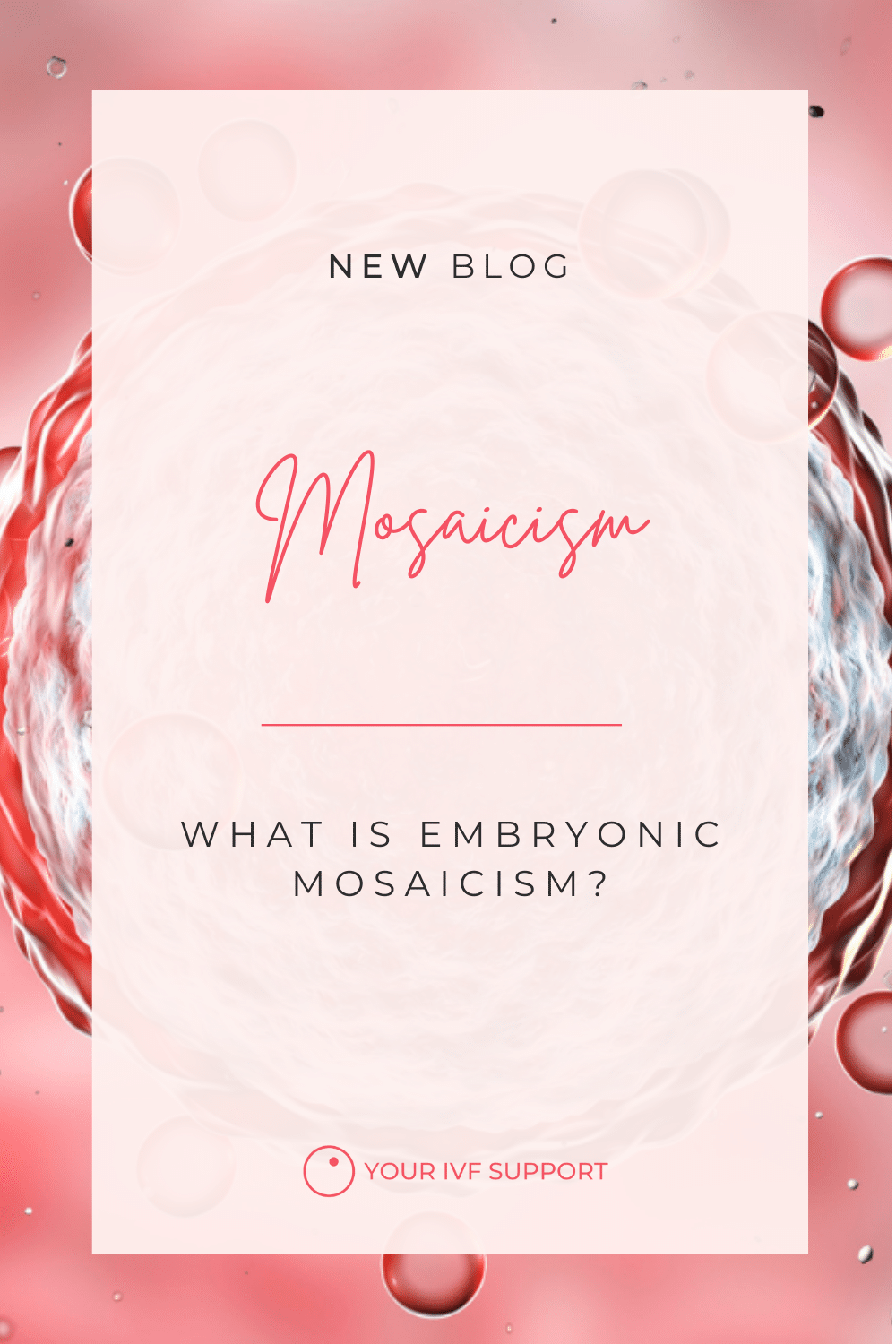
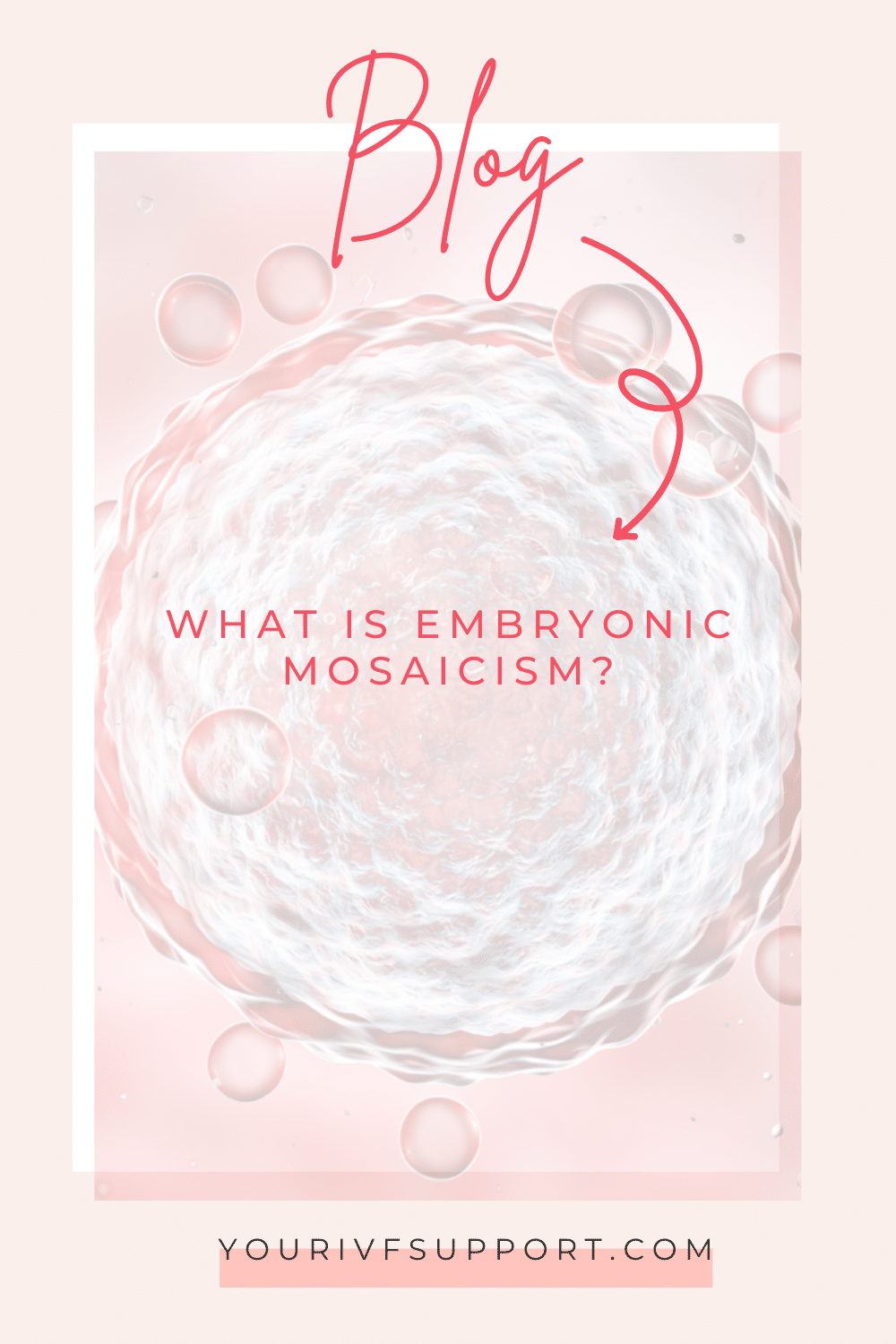
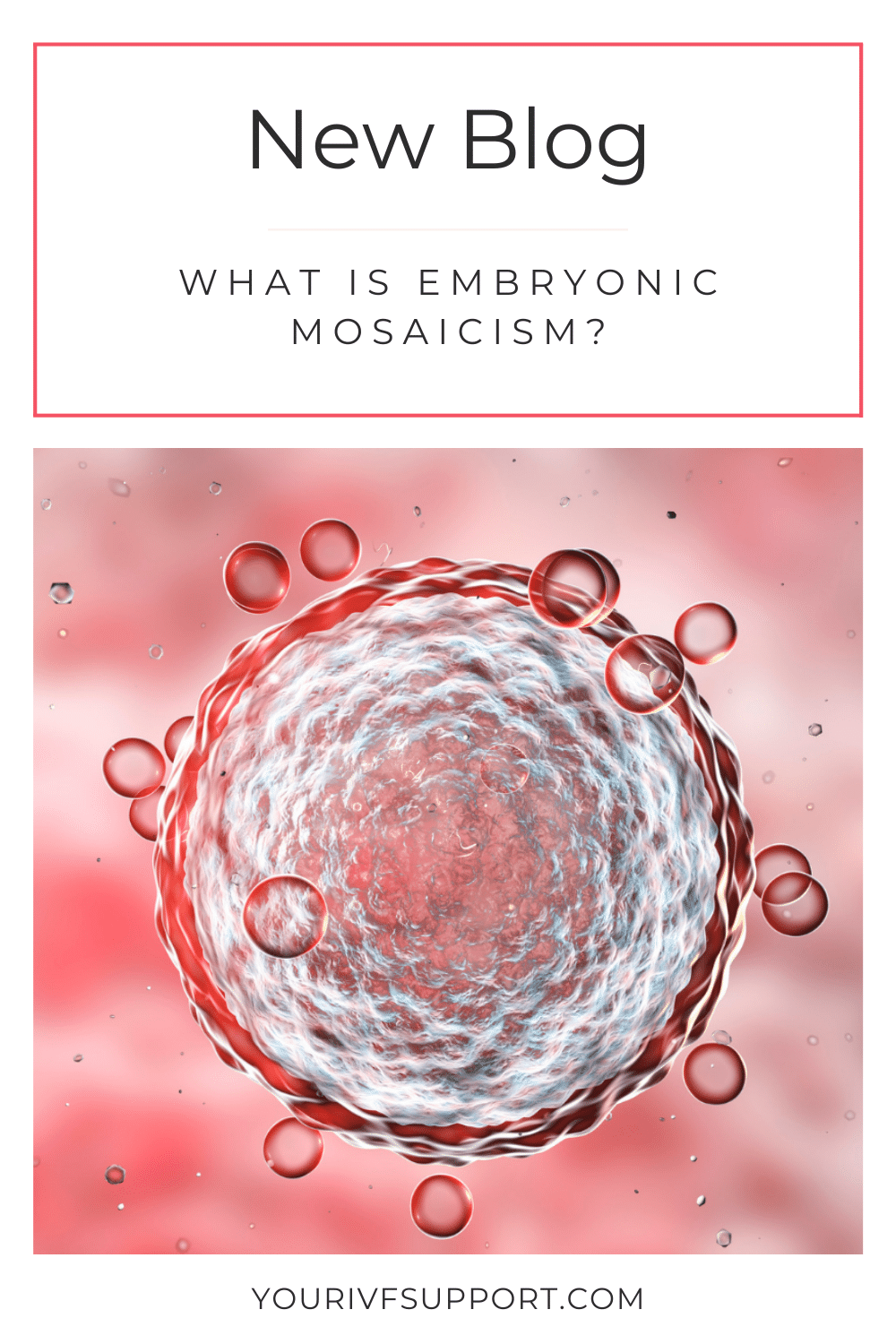
Current research and results
Research into embryonic mosaicism is in full swing. Recent studies have shown that mosaic embryos have a lower implantation rate but can still develop into healthy babies. There is a growing understanding of the mechanisms that help these embryos correct or cope with the abnormal cells.
Conclusion
Embryonic mosaicism is a complex phenomenon, but it is becoming better understood. As genetic testing advances and more research is done, we are learning more about how to use mosaic embryos effectively in fertility treatment. When making decisions about mosaic embryos, thorough genetic counselling and ongoing monitoring during pregnancy are essential.
Sources
1. Instituto Bernabeu, Alicante. According to studies by various fertility centres, including the Instituto Bernabeu, around 30% of pregnancies using mosaic embryos result in the birth of healthy children. Negative outcomes have not yet been clearly linked to the diagnosis of embryo mosaicism, although further research is needed. https://www.institutobernabeu.com/en/blog/what-is-embryo-mosaicism/
2. Dexeus Mujer, Barcelona. Das Dilemma des embryonalen Mosaizismus https://www.dexeus.com/blog/de/fruchtbarkeit/mosaik-embryonen/
3. PID Zentrum, München. Präimplantationsdiagnostik - Patienteninformation zu Mosaikbefunden https://www.pid-zentrum.de/files/pid_public/Downloads/Patienteninformationen/Patienteninformationen zu Mosaikbefunden PID.pdf
